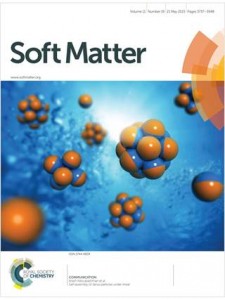 Authors are retracting a 2014 paper about how liquid-crystalline materials self-organize in low temperature conditions after realizing they had measured the temperatures incorrectly.
Authors are retracting a 2014 paper about how liquid-crystalline materials self-organize in low temperature conditions after realizing they had measured the temperatures incorrectly.
The error affected three figures and a table in “Milestone in the NTB phase investigation and beyond: direct insight into molecular self-assembly.” The paper, published in Soft Matter, has been cited three times, according to Thomson Reuters Web of Science.
The retraction note, published in August, offers more detail as to exactly what went wrong:


